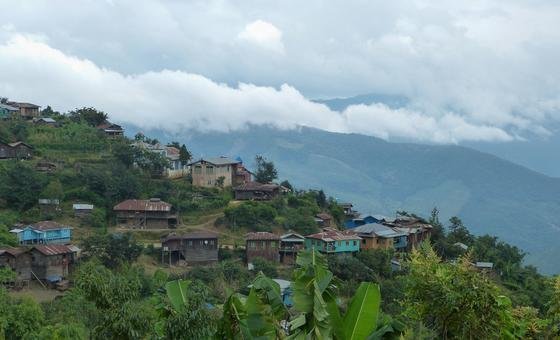The Daily Observer London Desk: Reporter- James Richards
Among those fighting the military are a loose coalition of well-armed ethnic militias, as well as the People’s Defence Forces (PDF) – an armed group supporting National Unity Government (NUG) and opposed to the February 2021 military coup, according to media reports.
Telecommunication blackouts
In a flash update, the UN Office for Coordination of Humanitarian Affairs (OCHA) said that more than 578,000 people are estimated to have been displaced since 26 October but cautioned that figures are difficult to confirm given undocumented returns, repeated displacements and telecommunication blackouts.
In addition, 363 civilians, including women, and children, have reportedly been killed and a further 461 injured over the last six weeks.
“Ongoing armed clashes, airstrikes, landmines, arbitrary arrests and roadblocks are rapidly increasing protection risks for civilians and are severely restricting the movement of essential goods, as well as people seeking places of safety,” the Office said.
“Telecommunications blackouts in many conflict-affected areas are also making verification more challenging,” it added.
Rising humanitarian needs
According to OCHA, food, shelter, hygiene, basic health and protection, are the most pressing needs across conflict-affected areas.
The latest displacements add to some two million people displaced since the junta usurped the democratically elected government in February 2021.
Faith-based organizations and local responders, in collaboration with aid agencies, continue to provide critical and lifesaving assistance to displaced and affected communities wherever access is possible.
Challenge to respond
In addition to access challenges, underfunding and rapidly depleting supplies are complicating the situation.
The 2023 Humanitarian Response Plan for Myanmar, which seeks $887 million to support the 4.5 million people worst affected in the country, is only 29 per cent funded.
Against this backdrop, the UN Central Emergency Response Fund (CERF) on Tuesday approved an emergency $7 million allocation to provide lifesaving aid to people most affected by the violence.
However, more support is urgently needed to enable humanitarians respond effectively and at scale to the escalating needs.



